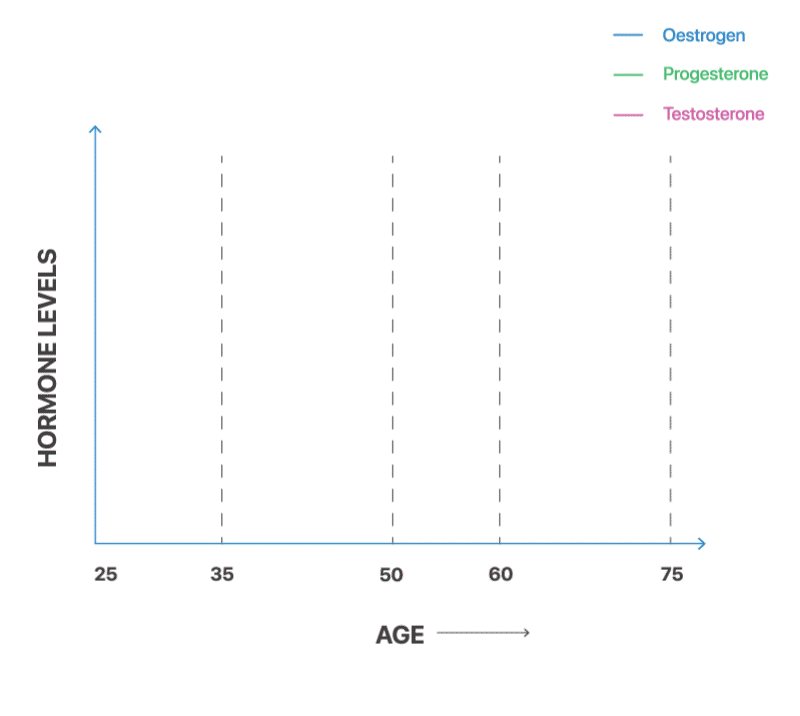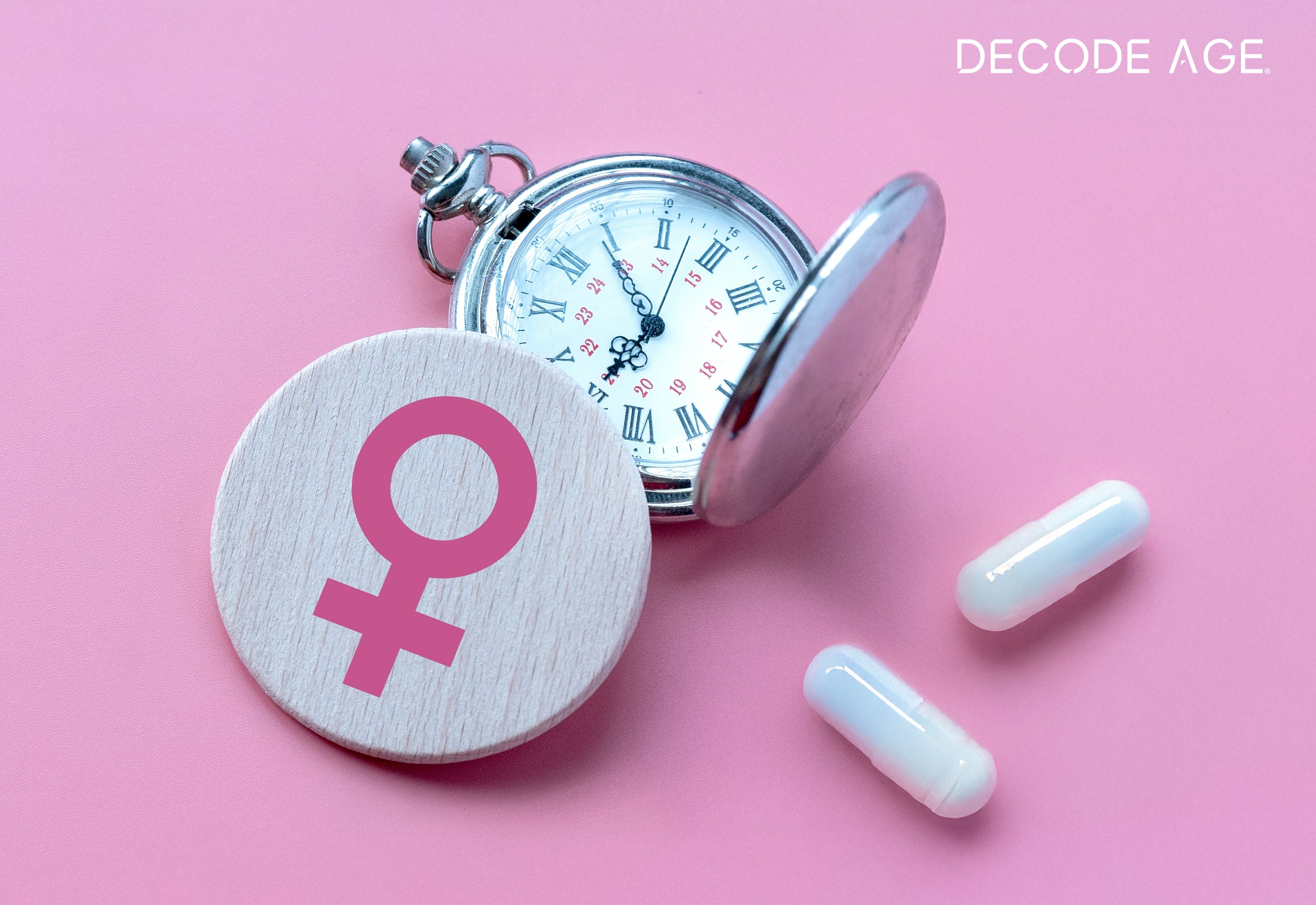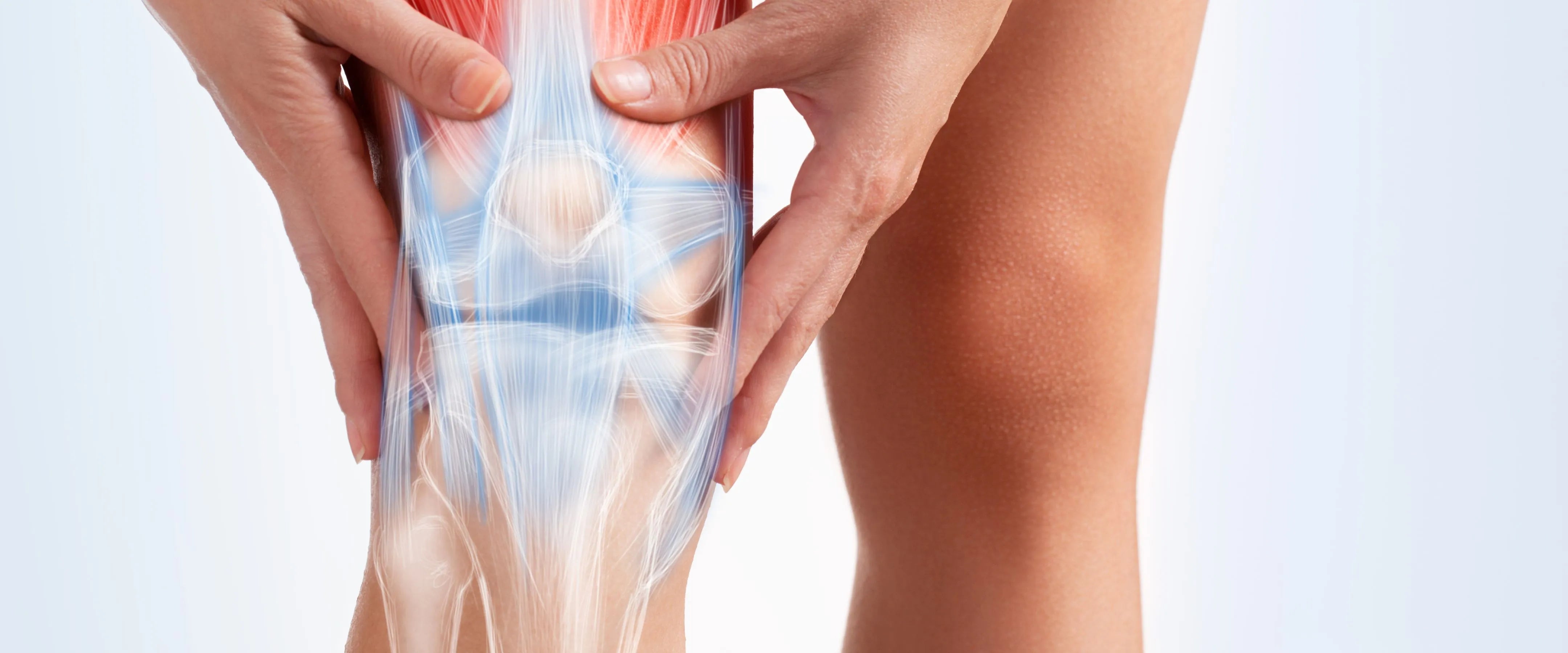Menopause, a natural part of ageing, marks the end of a woman's reproductive years. Recognising the early symptoms of menopause is critical for timely management, significantly impacting women's health. Hormonal shifts during menopause affect various bodily functions, from metabolism to mental health and sleep patterns. As the global population ages, understanding and addressing perimenopause symptoms becomes integral to managing social, economic, and healthcare issues associated with ageing. It's not merely a phase but a continuous process demanding personalised care and attention. Therefore, addressing menopause signs through lifestyle adjustments or medical interventions is essential for a woman's overall health and quality of life.
What is Menopause, Perimenopause, and Post-Menopause?
The word menopause comes from the Greek words "mens" for month and "pausis" for cessation. Menopause marks a significant biological event in a woman's life, signaling the end of menstruation for at least 12 consecutive months. However, the years leading up to this milestone, characterised by hormonal fluctuations and various symptoms, are collectively known as the menopausal phase or perimenopause. Perimenopause is the phase preceding menopause signs, typically commencing between ages 45 and 55, although individual variations exist. This period spans about seven years on average but can extend up to 14 years, influenced by factors like lifestyle choices, onset age, and ethnic background. Hormone production, specifically oestrogen and progesterone from the ovaries, undergoes rapid changes during perimenopause. Women may experience changes in their menstrual cycles, hot flashes, mood swings, and other symptoms of menopause during this time.
Understanding the link between ageing and menopause is essential, as many mistakenly believe they are "in menopause" when experiencing perimenopausal symptoms due to overlapping symptoms. Once an individual has completed 12 consecutive months without menstruation, excluding other medical conditions, they enter the post-menopause stage. Stabilised hormone levels characterise post-menopause symptoms, particularly decreased oestrogen production, leading to reduced symptoms such as hot flashes and night sweats. However, the decline in oestrogen levels also poses health risks such as osteoporosis and coronary artery disease due to its impact on bone and heart health. (Greendale et al., 1999; Shuster et al., 2010)
During menopause, hormonal changes play a crucial role:
- Oestrogen: Levels of this hormone, responsible for regulating the menstrual cycle and supporting bone health, decline significantly during and after menopause. Lower oestrogen levels contribute to symptoms like hot flashes, vaginal dryness, and bone density loss.
- Progesterone: This hormone, vital for maintaining the uterine lining during the menstrual cycle, also decreases during menopause. Reduced progesterone levels may lead to irregular periods and changes in mood.
- Testosterone: Although it is commonly associated with men, women also produce it in smaller amounts. Testosterone levels may decrease slightly during menopause, affecting libido and energy levels in some women.
Besides hormonal changes, menopause impacts energy metabolism, fat distribution, and body composition, potentially leading to weight gain and alterations in physical function. Understanding these stages and associated hormonal shifts enables women and healthcare providers to navigate menopausal challenges effectively, promoting holistic health and well-being during this transformative phase of life.

Common Symptoms of Menopause
During menopause, typical symptoms include irregular periods, changes in bleeding patterns (more or less), and potential spotting. Other common signs are hot flashes from menopause, night sweats, mood swings, and vaginal dryness. Oestrogen decline affects various body systems, leading to sleep disturbances, fatigue, and reduced bone density. While some manage symptoms with lifestyle adjustments, severe cases may require medical intervention. Importantly, symptom severity and duration vary widely among individuals, influenced by genetics, lifestyle, and overall health. Regular check-ups can help manage symptoms and rule out underlying issues, ensuring a smoother transition through menopause.
“Did you know? The average time a person will experience menopausal symptoms is 7 years.”
Early Signs of Menopause
Here are the most common signs you might notice in midlife. Some may be part of ageing rather than directly related to menopause.
Irregular periods
Irregular periods can manifest in various ways shorter or longer cycles, increased or decreased bleeding, frequent periods, heavy bleeding, spotting, extended periods, or resuming periods after a year without bleeding.
Hot flashes or warm flashes
Menopause hot flashes, also known as menopause warm flashes or vasomotor symptoms, are common among menopausal women due to fluctuating oestrogen levels. They cause sudden heat sensations in the body, often accompanied by flushed skin, sweating, and occasional shivering. These episodes, known as night sweats, can disrupt sleep and vary in intensity and frequency, lasting from seconds to minutes.
Mood swings and irritability
Mood swings and irritability often coincide with menopause, though the exact cause remains unclear. Stress, family dynamics, a history of depression, and fatigue may contribute to these shifts. Understanding these factors can help manage mood changes during this transitional phase.
Changes in libido
During menopause, individuals may notice a decrease in libido or sex drive. This decline can affect orgasm frequency and coital frequency in menopausal and postmenopausal women, often due to physiological shifts. Hormonal changes, physical alterations, and sociopsychological factors can all contribute to this change in libido.
Fatigue and sleep disturbances
During midlife, many women experience sleep disturbances such as difficulty falling asleep, waking too early, night sweats disrupting sleep, and difficulty falling back asleep after waking up during the night. These issues contribute to fatigue and impact overall well-being.
Vaginal dryness and discomfort during intercourse
After menopause, vaginal dryness can cause discomfort during intercourse. Postmenopausal symptoms can also alter sexual interest, potentially reducing or liberating individuals' desires. While the risk of pregnancy decreases, the risk of sexually transmitted diseases (STDs) remains the same. Therefore, using protection is necessary.
Loss of bladder control
Loss of bladder control, or incontinence, involves sudden urges to urinate or urine leaks during activities like exercise or laughing. Bladder infections are also common in midlife. Kindly seek medical advice if facing severe symptoms.
Memory lapses and cognitive changes
During menopause or perimenopause symptoms, about 60% of women may experience brain fog, lapses in concentration and memory problems, specifically an absence of learning, during the perimenopausal timeframe, which resolves in the postmenopausal years. These cognitive changes are common during the early and middle stages of menopause.
Joint pain and stiffness
Joint pain and stiffness are common symptoms associated with hormonal changes, ageing and menopause. Researchers are investigating their correlation with hormones. Menopausal women may also experience aches, headaches, and heart palpitations. Consulting a doctor is crucial due to the varying frequency and severity of symptoms caused by fluctuating hormone levels.
Changes in hair and skin quality
Menopause triggers noticeable shifts in hair and skin quality due to hormonal fluctuations. The skin may become dry, thin, and less elastic, while the hair may thin on the scalp and increase on the face. Proper skincare and haircare routines can mitigate these changes, promoting healthier hair and skin during this phase.
Recognising Symptoms of Early Menopause
Recognising the symptoms of early menopause and being proactive about health are crucial steps for women to maintain their well-being and quality of life.
- Health Monitoring
Regular health check-ups and awareness of one's body can help women identify abnormal changes early on. It's important to consult with healthcare providers about any concerns regarding menstrual irregularities or menopausal symptoms.
- Early Detection of Menopause
Recognising early signs such as irregular periods, hot flashes or warm flashes, night sweats, vaginal dryness, mood swings, and changes in libido can prompt timely evaluation and management.
- Fertility Preservation
For women planning to have children, early detection of menopause can facilitate discussions about fertility preservation options such as egg freezing or embryo banking.
- Bone Health
Early menopause is associated with an increased risk of osteoporosis due to decreased oestrogen levels. Treatment methods such as calcium and vitamin D supplementation, weight-bearing exercises, and bone density monitoring can help maintain bone health.
- Heart Health
Oestrogen plays a role in maintaining cardiovascular health, and early menopause may increase the risk of heart disease. Lifestyle modifications like regular exercise, healthy diet choices, smoking cessation, and blood pressure management can mitigate these risks.
- Emotional Well-being
The ageing and menopause transition can be emotionally challenging due to hormonal fluctuations and associated symptoms like mood swings and anxiety. Counselling, support groups, mindfulness practices, and cognitive-behavioural techniques can improve emotional resilience.
- Sexual Health
Addressing vaginal dryness, pain during intercourse, and changes in libido through lubricants, vaginal moisturisers, hormone therapy, and sexual counselling can enhance sexual satisfaction and intimacy.
Managing Menopause Symptoms
- Lifestyle and Dietary Changes
Managing menopause symptoms through lifestyle changes involves avoiding triggers like spicy foods, hot beverages, caffeine, and alcohol. Dressing in breathable clothes helps during hot flashes from menopause, and lowering room temperatures while staying hydrated is crucial. Non-oestrogen lubricants and moisturisers can alleviate vaginal dryness without a prescription.
- Exercise
Exercise plays an important role in managing menopause symptoms. Activities like brisk walking, dancing, and weightlifting can alleviate hot flashes and prevent weight gain. Aim for 30 minutes daily, increasing for weight loss. Any amount of exercise helps, but consistency is key for overall well-being
- Hormone Replacement Therapy
Hormone replacement therapy (HRT) alleviates menopausal symptoms by replenishing oestrogen levels. It effectively manages hot flashes from menopause and vaginal discomfort and prevents bone loss, reducing fracture risks in postmenopausal symptom women. Despite its benefits, HRT carries risks depending on the type, dosage, duration, and individual health factors. Regular reevaluation ensures optimal benefits versus risks.
- Acupuncture
Acupuncture, along with meditation and yoga, effectively alleviates menopausal stress. This traditional practice inserts thin needles at precise body points, offering women relief without side effects. Many find significant benefits from these holistic approaches, making them safe and natural choices for managing menopause symptoms.
- Herbals and Supplements
Women commonly turn to herbal remedies and supplements to alleviate menopausal symptoms. Supplementation during menopause can address hormonal imbalances, ease symptoms like hot flashes, and support bone health. Scientific research validates the efficacy and safety of supplements, enhancing menopausal well-being. It's crucial to approach such treatments with caution and consult healthcare professionals for personalised guidance.
Empowering Women Through Knowledge
Empowering women through knowledge involves encouraging them to track their symptoms, seek support from healthcare providers, and prioritise self-care during the menopause phase.
- Website:
It is recommended to access reputable websites like Menopause and Me! for comprehensive information, tips, and resources related to menopause management.
- Books:
Suggest reading informative books such as "The Menopause Guidebook" by The North American Menopause Society, "The Menopause Manifesto: Own Your Health With Facts and Feminism" by Dr. Jen Gunter, and "The Natural Menopause Method: A Nutritional Guide Through Perimenopause and Beyond" by Karen Newby for in-depth knowledge and guidance.
- Support Groups:
Connect women with supportive communities such as The Indian Menopause Society and The International Menopause Society to access peer support, expert advice, and educational events related to menopause.
The Bottom Line
For many people, menopause is not the only transition during middle age. Shifts in relationships, work dynamics, and family life (such as children leaving home) can also bring about substantial changes, leading to feelings of being overwhelmed when multiple transitions happen simultaneously.
However, it's important to note that many people continue to lead fulfilling lives during and after menopause, often viewing midlife as a fresh beginning rather than an end. They remain active and healthy, embracing this stage as the start of a new chapter in life.
It's important to seek medical help if menopause symptoms significantly affect your daily life, if you experience non-menopause-related symptoms, or if you're under 45 years old and experiencing menopause symptoms.
FAQs
How does menopause affect ageing?
Menopause accelerates ageing at a cellular level by around 6%. Its impact varies among women, altering energy usage and fat distribution, leading to easier weight gain, and affecting bone/heart health, body shape, and physical abilities. These changes reflect the body's adjustment to hormonal shifts, influencing overall ageing rates uniquely for each woman.
What are the symptoms of menopause in a woman?
Menopause symptoms vary but commonly include anxiety, mood swings, skin changes (dryness or acne), sleep disturbances, discomfort during sex, hair loss, headaches, hot flushes, facial hair growth, joint pain, reduced confidence, night sweats, palpitations, memory issues, urinary problems, decreased libido, tinnitus, vaginal dryness, and pain. Menopause also heightens the risks of osteoporosis and heart disease.
What are the worst symptoms of perimenopause?
The worst symptoms of perimenopause typically occur in the five years before menopause. This phase can span an average of four years and extend for over a decade. During this time, menstrual cycles may fluctuate in length, ovulation can become irregular, and menopause-like symptoms such as hot flashes, sleep disturbances, and vaginal dryness may manifest. These symptoms can significantly impact daily life and require management strategies for comfort and well-being.
What are the 3 stages of menopause?
Menopause is divided into three stages: perimenopause, menopause, and post-menopause. Perimenopause marks the transition phase with irregular periods and hormonal fluctuations. Menopause itself is identified as a year without menstruation, signalling the end of the reproductive years. Post-menopause follows, featuring stabilised hormone levels and potential symptom relief. These stages collectively reflect the gradual hormonal shifts and reproductive changes women experience during this natural phase of life.
What are 5 foods to manage menopause?
In managing menopause symptoms through diet, specific foods offer benefits. Fatty fish, like salmon and tuna reduce hot flashes and depression due to omega-3s. Yoghurt aids bone health and sleep quality. Beans improve mood and glucose regulation with protein and nutrients. Soy foods alleviate hot flashes, and nuts like walnuts aid weight and heart health with healthy fats and antioxidants. Including these foods can effectively manage menopausal symptoms.




























Leave a comment
All comments are moderated before being published.
This site is protected by hCaptcha and the hCaptcha Privacy Policy and Terms of Service apply.